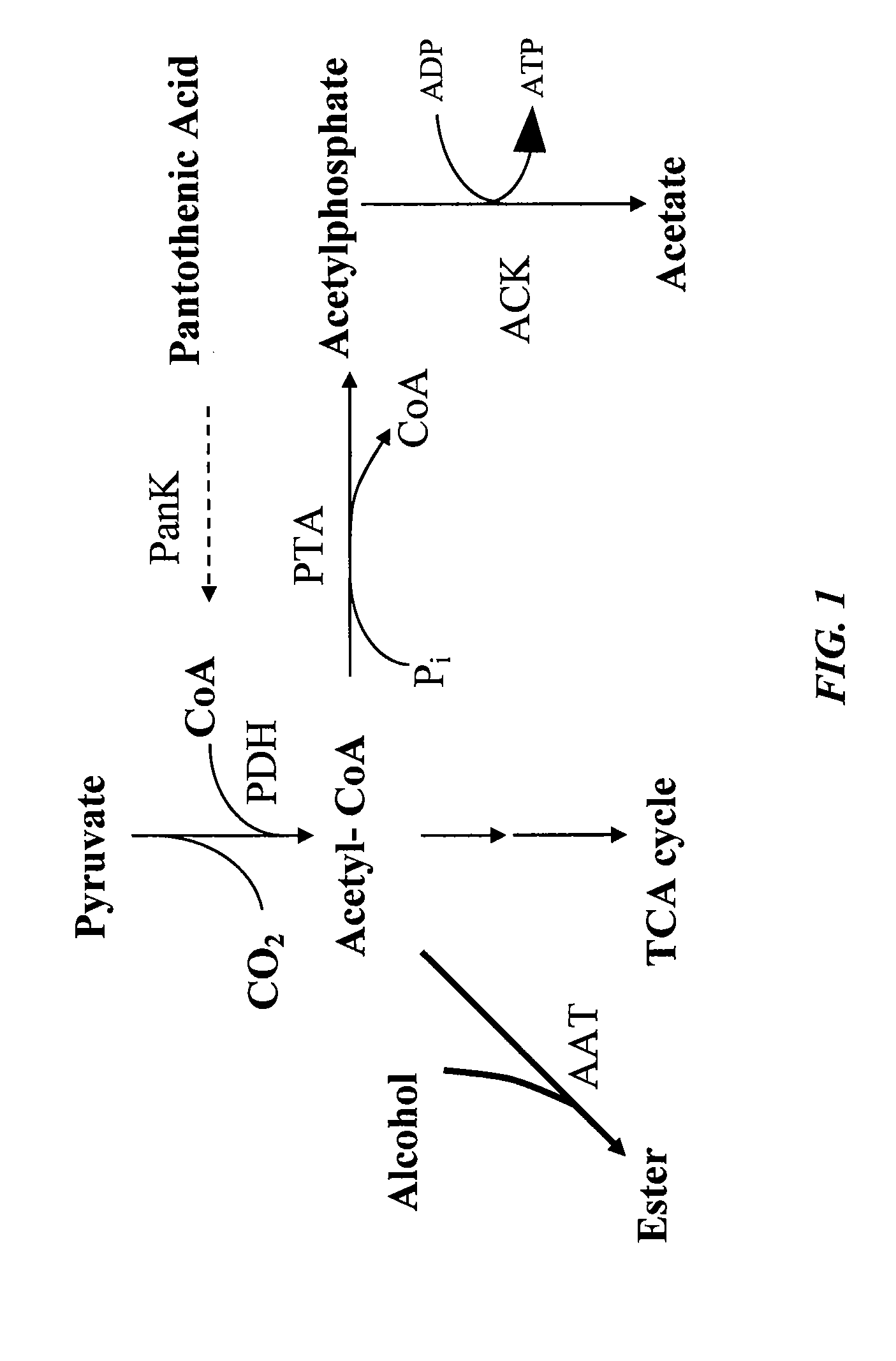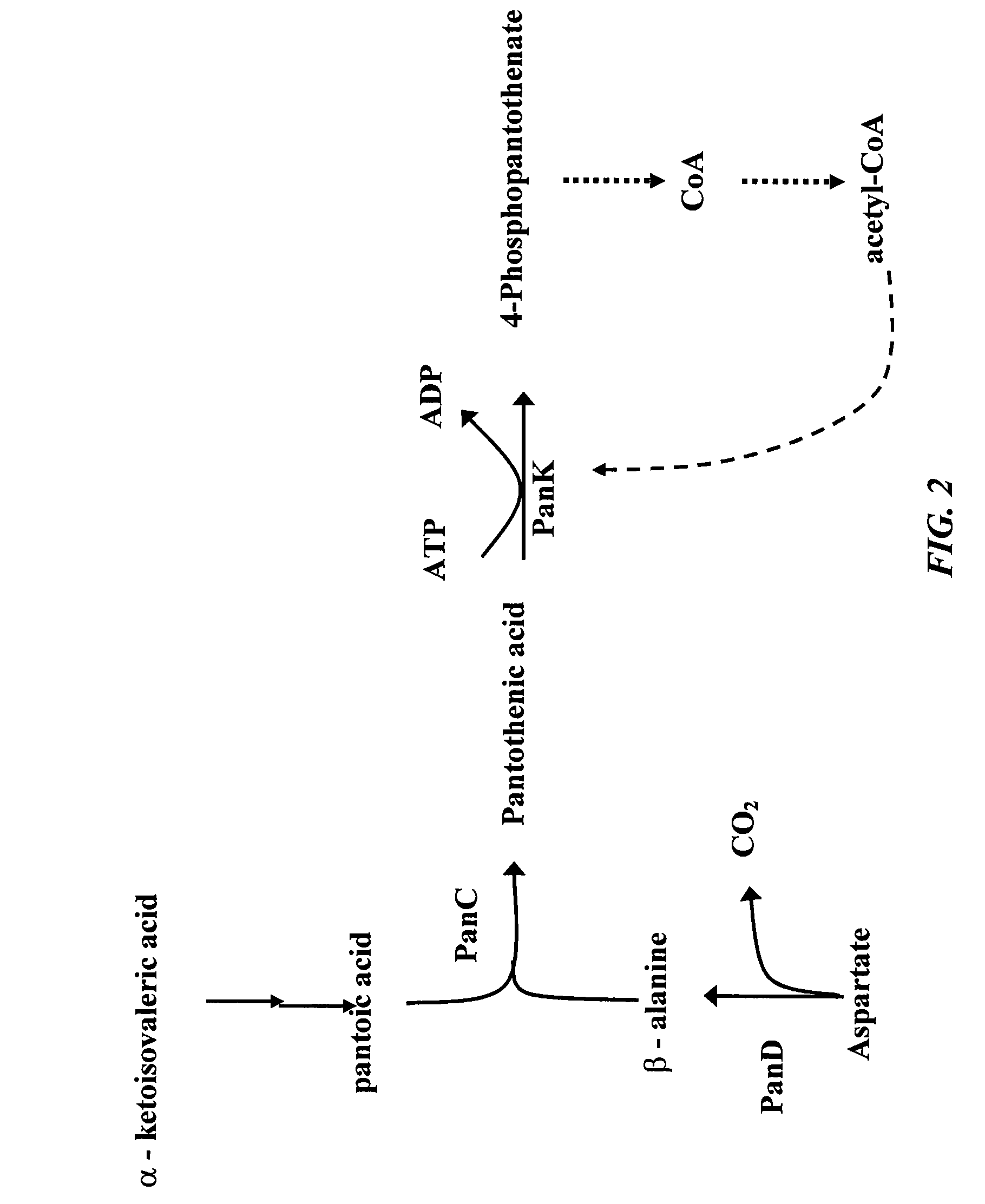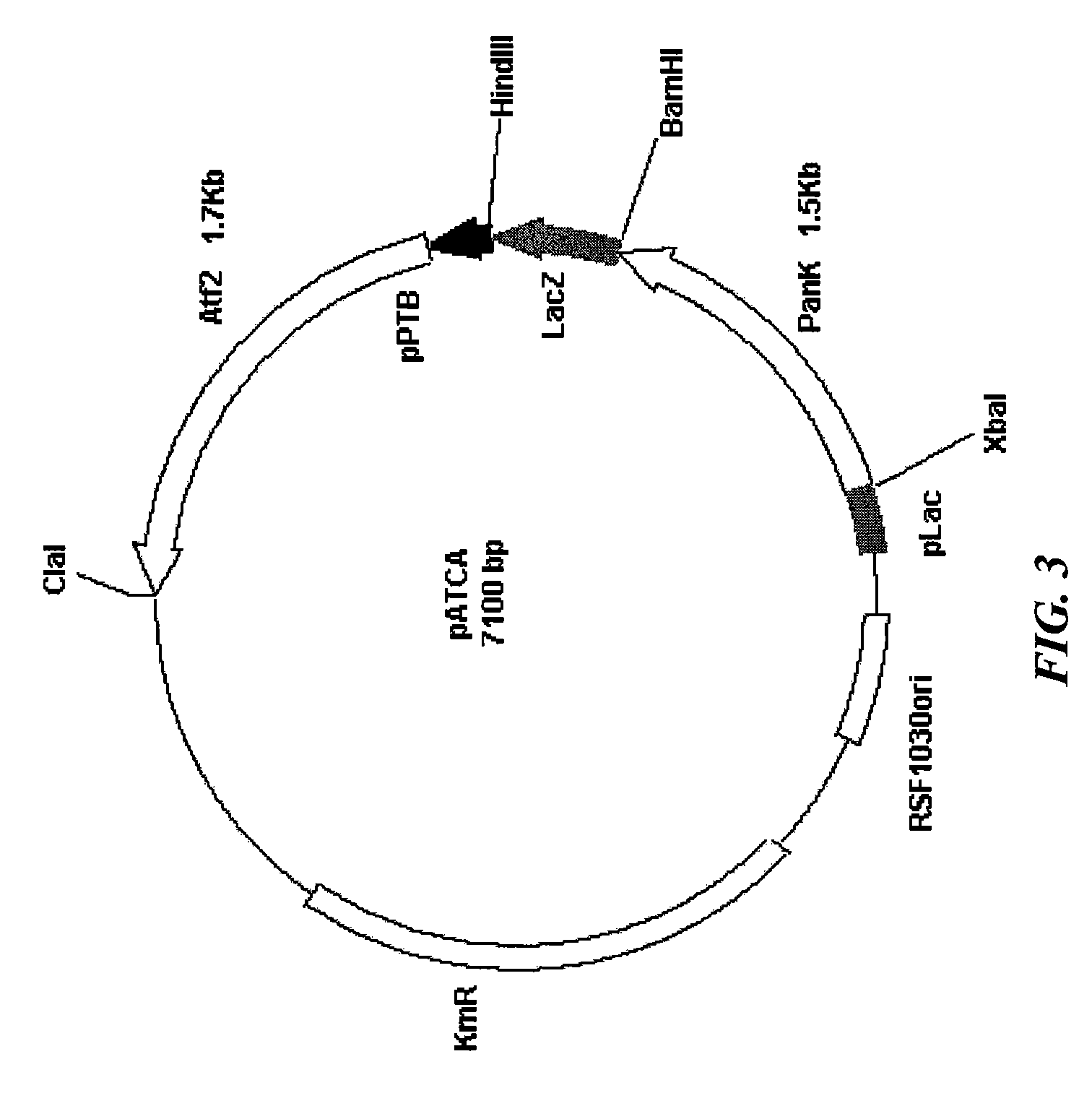Increased bacterial CoA and acetyl-CoA pools
a technology of acetylcoa and coa, which is applied in the field of increasing bacterial coa and acetylcoa pools, can solve the problems of increasing the intracellular levels of a-coa, overexpression of enzymes that catalyze these rate limiting steps, etc., and achieves the effects of increasing the intracellular increasing flux, and increasing the levels of coa or a-coa
- Summary
- Abstract
- Description
- Claims
- Application Information
AI Technical Summary
Benefits of technology
Problems solved by technology
Method used
Image
Examples
example 1
Plasmid Construction
[0042]Plasmid pGS367 (Pyruvate dehydrogenase expression plasmid) was obtained from Dr J. R. Guest of Dept of Molecular Biology and Biotechnology, University of Sheffield, Sheffield, UK. Plasmid pSJ380 bearing the panK (Pantothenate Kinase) gene cloned in pET-15b (NOVAGEN™) vector under the control of T7 promoter was obtained from Dr. Suzanne Jackowski of Biochemistry Dept, St Jude Children's Research Hospital, Memphis, Tenn. A 1.5 kb XbaI-BamHI fragment containing the panK gene was cloned into the high copy number plasmid pUC19 to yield the construct pRV380, following which it was cloned into the plasmid pDHK29 using the same restriction sites to yield the construct pRV480. The construct, pRV480, bearing the panK gene is compatible with pGS367. The ATF2 (Alcohol Transferase 2) gene along with the ptb (Phosphotransbutyrylase) promoter was amplified by PCR the construct pTAAT (which carries the ATF2 gene of yeast) as template DNA. The forward and reverse primers us...
example 2
Bioreactor Experiments
[0048]Bioreactor studies were performed in a 1 liter (l) BIOFLO 110 fermentor with 0.5 liter working volume to provide a controlled environment with 0.5 l working volume. The dilution rate was maintained at either 0.15 / hr or 0.35 / hr until it reached a steady state after 4 to 6 residence times. The temperature was controlled at 37° C. The pH was measured using a glass electrode (METTLER-TOLEDO™) and controlled at a set point of 7.0 by adding 3N HNO3 or 3N NaOH. Dissolved oxygen (DO) was monitored using a polarographic oxygen electrode (METTLER-TOLEDO™) and the DO was maintained above 80% saturation by an automated controller which adjusts the agitation appropriately using a feed back control loop. The air was filtered through a 0.22-μm inline filter and delivered to the culture at a flow rate of 2.5 liters / min. The initial agitation speed was set at 500 rpm. The effluent gases were bubbled through a 1 M CuSO4 solution to prevent release of bacteria. Samples were...
example 3
Aerobic Shake Flask Experiments
[0049]Since isoamyl alcohol and isoamyl acetate are volatile compounds, aerobic shake flask experiments were carried out in flasks capped with rubber stoppers. The rubber stopper facilitates headspace gas sampling for analysis of volatile compounds (isoamyl acetate and isoamyl alcohol) and also prevents their escape from the flask. For aerobic cultures, 10 ml culture medium was used in a 250 ml Erlenmeyer flask and preliminary experiments have shown that the high headspace to culture medium ratio (240:10 air-to-liquid ratio) provided sufficient aeration over the course of the experiment. The cultures were grown in an orbital shaker at the required temperature. At the end of the experiment (24 hrs), the cultures were analyzed for isoamyl acetate production.
PUM
| Property | Measurement | Unit |
|---|---|---|
| volume | aaaaa | aaaaa |
| volume | aaaaa | aaaaa |
| volume | aaaaa | aaaaa |
Abstract
Description
Claims
Application Information
 Login to View More
Login to View More - R&D
- Intellectual Property
- Life Sciences
- Materials
- Tech Scout
- Unparalleled Data Quality
- Higher Quality Content
- 60% Fewer Hallucinations
Browse by: Latest US Patents, China's latest patents, Technical Efficacy Thesaurus, Application Domain, Technology Topic, Popular Technical Reports.
© 2025 PatSnap. All rights reserved.Legal|Privacy policy|Modern Slavery Act Transparency Statement|Sitemap|About US| Contact US: help@patsnap.com



